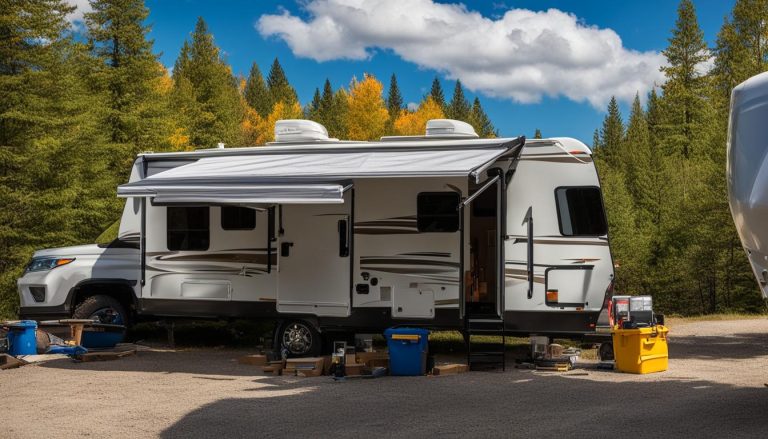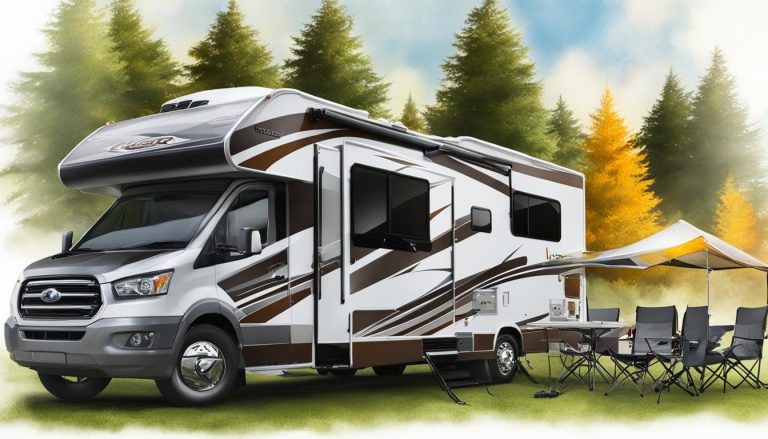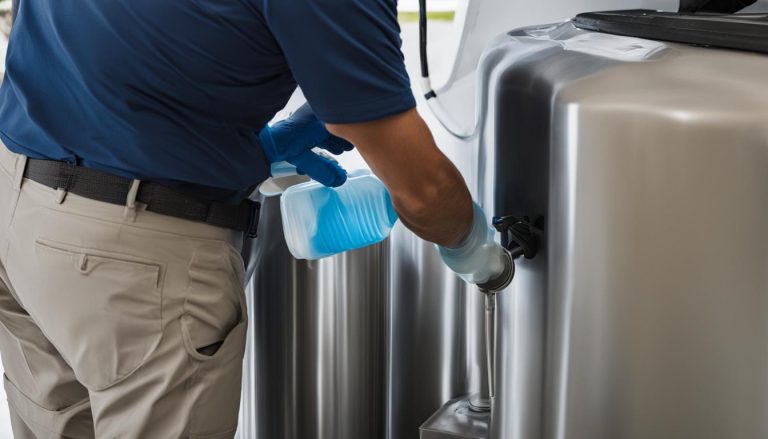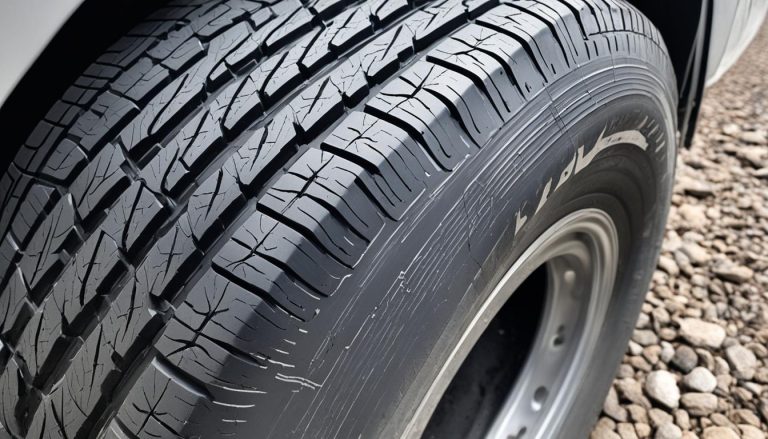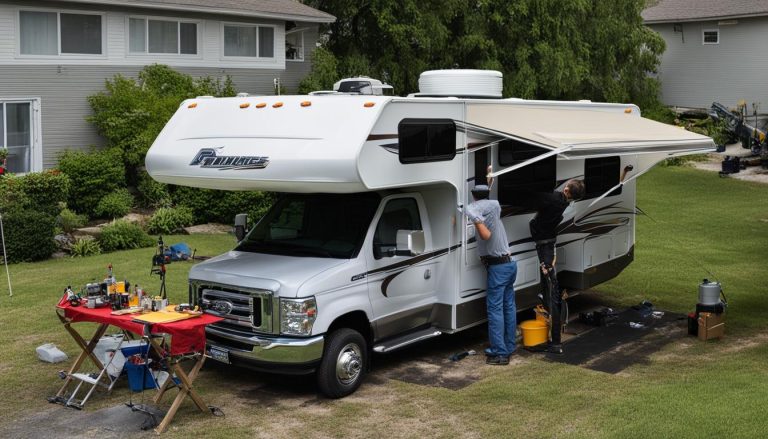Stay Connected: How to Get Internet in Your RV
gorvlifestyle.com and its partners may earn a commission if you purchase a product through one of our links
Are you planning your next adventure on wheels but worried about staying connected while on the road? Don’t fret! With the right setup and gear, you can have internet access almost anywhere in your RV. Whether you need to work remotely, stream your favorite shows, or simply stay connected with loved ones, we’ve got you covered.
Key Takeaways:
- There are two primary options for getting internet in your RV: cellular data or connecting to a local WiFi network.
- Consider your internet usage requirements and the reliability of campground WiFi when choosing the right setup.
- Understanding terms like speed tests, hotspots, boosters, repeaters, and routers will help you make informed decisions.
- Determining your internet needs and evaluating gear options is crucial before making a purchase.
- Maximize your RV WiFi connection by using extenders, adjusting data usage settings, and conducting regular speed tests.
Determining Your Internet Needs
Before purchasing any internet setup for your RV, it’s important to determine your internet needs. Understanding your internet usage requirements will help you choose the right solution for staying connected on your travels. Consider the following factors:
- Working remotely: If you need to work remotely while on the road, you’ll require a reliable and high-speed internet connection.
- Streaming videos: If you enjoy streaming movies, TV shows, or online content, you’ll need a connection that can handle the bandwidth requirements.
- Internet for boondocking: If you frequently boondock or camp in remote areas without WiFi access, you’ll need an internet setup that can rely on cellular data.
Based on your specific internet usage requirements, different setups may be necessary. For occasional internet use, connecting to campground WiFi or using your phone as a mobile hotspot might be sufficient. However, if you require a reliable and high-speed internet connection for work or streaming, you may need to invest in additional gear and data plans. Understanding your needs will help you make an informed decision and enjoy a seamless internet experience in your RV.
“Make sure to consider your internet needs when choosing an RV internet setup. Working remotely or streaming videos may require a more robust solution, while occasional internet use may only require basic connectivity options.”
Having a clear understanding of your internet needs is the first step in staying connected while traveling in your RV. Once you’ve determined your requirements, you can explore the various options available to meet your specific needs. Whether you’re working, streaming, or simply staying connected, finding the right internet setup will ensure a smooth and enjoyable experience on the road.
Using Cellular Data
One option for getting internet in your RV is to use cellular data from a provider like AT&T or Verizon. Depending on your internet usage requirements, you may need an unlimited data plan to avoid data caps. It’s important to consider your data usage and the potential for data throttling, where your internet speeds are slowed down after reaching a certain data threshold. Signal boosters can also be used to enhance your cellular signal for better internet connectivity.
When using cellular data, you can choose between different cellular data providers such as AT&T and Verizon, among others. These providers offer various data plans, including unlimited data plans, to cater to different user needs.
Data usage is a crucial factor to consider when utilizing cellular data. Streaming videos and downloading large files consume significant amounts of data. Therefore, if you have high data usage, opting for an unlimited data plan will ensure you don’t surpass your allocated data limit and experience reduced speeds or additional charges.
It’s essential to be aware of data throttling, a practice employed by some cellular data providers. With data throttling, your internet speeds may be reduced after a certain amount of data usage within a billing cycle. This policy aims to manage network traffic and ensure fair usage among all users. However, if you require consistent high-speed internet throughout your travels, it’s recommended to choose a provider or plan that doesn’t impose data throttling.
For optimal internet connectivity, you can also consider using signal boosters. These devices amplify the cellular signal, strengthening the connection and improving your internet speeds. Signal boosters are especially valuable in areas with weaker signal coverage, allowing you to access a more reliable internet connection in your RV.
A Comparison of Cellular Data Providers
| Provider | Plan Options | Unlimited Data | Signal Coverage | Data Throttling |
|---|---|---|---|---|
| AT&T | Multiple plans available with varying data limits | Available | Wide coverage, suitable for urban and rural areas | May throttle speeds after reaching data limit on some plans |
| Verizon | Multiple plans available with varying data limits | Available | Extensive nationwide coverage | May throttle speeds after reaching data limit on some plans |
When choosing a cellular data provider for your RV, consider factors such as the coverage in your desired travel locations, the availability of unlimited data plans, and the provider’s data throttling policies. Researching and selecting the right cellular data provider can ensure a reliable and consistent internet connection for your RV adventures.
Connecting to WiFi Networks
When it comes to getting internet in your RV, connecting to WiFi networks, such as campground WiFi, can be a convenient option. However, it’s important to note that campground WiFi may not always provide a reliable and fast connection. Factors such as the distance between your RV and the WiFi router, interference from other RVs, and the number of people using the network can affect the signal strength and overall performance.
In order to improve WiFi signal strength inside your RV, you can consider using WiFi extenders or repeaters. These devices help boost the WiFi signal, extending its range and ensuring better coverage throughout your RV. By placing a WiFi extender or repeater strategically inside your RV, you can enhance the signal and eliminate dead zones, allowing you to stay connected from any corner of your vehicle.
Additionally, if you plan on boondocking or camping in remote areas where WiFi networks may not be available, you may need to rely on cellular data instead. While cellular data can be a reliable alternative, it’s important to keep an eye on your data usage to avoid exceeding your plan’s limits. Consider investing in a signal booster to enhance your cellular signal and improve internet connectivity, especially in areas with weak reception.
“Having a WiFi extender or repeater in your RV can significantly improve your internet experience, ensuring a stronger and more stable connection inside your vehicle.”
WiFi Connectivity Comparison
| Campground WiFi | Cellular Data | |
|---|---|---|
| Reliability | Varies based on campground infrastructure and usage | Dependent on cellular network coverage |
| Speed | Can be slow and inconsistent | Depends on signal strength and data plan |
| Availability | Available in campgrounds and some public areas | Accessible in most locations with cellular coverage |
| Signal Strength | May vary within different areas of the campground | Can be enhanced with signal boosters |
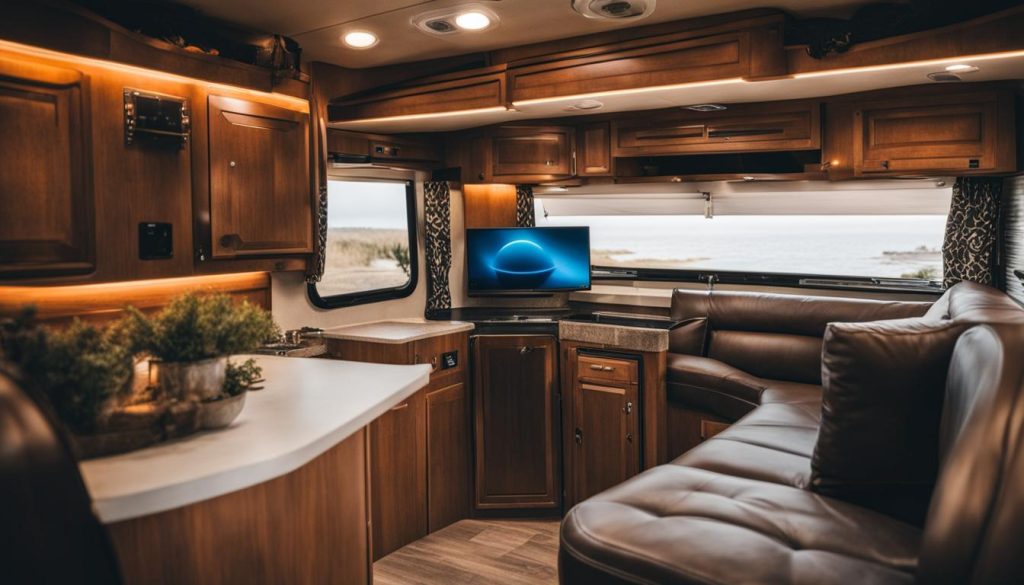
While WiFi networks can be a convenient option for internet access in your RV, it’s important to evaluate the reliability and speed of the network before fully depending on it. WiFi extenders or repeaters can help improve signal strength inside your RV, ensuring a better browsing experience. However, in remote areas or during boondocking adventures where WiFi may not be available, relying on cellular data and using a signal booster can be a viable alternative to stay connected.
Understanding Internet Terms and Gear Options
To navigate the world of RV WiFi, it’s important to understand common internet terms and different gear options available. This knowledge will help you make informed decisions and optimize your internet connectivity. Here are some key terms and gear options to familiarize yourself with:
1. Internet Speed Tests
Internet speed tests are a useful tool for determining the speed of your internet connection. They measure both upload and download speeds, allowing you to assess the performance of your RV WiFi setup. You can find various online speed tests or use dedicated apps to conduct these tests.
2. Hotspots
Hotspots are devices that create an internet connection using cellular data. Providers like T-Mobile or Verizon offer portable hotspots that you can use to access the internet in your RV. These devices work by connecting to the cellular network and transmitting a WiFi signal for your devices to connect to.
3. Boosters and Repeaters
Boosters and repeaters are essential for enhancing your RV’s cellular signal strength. They amplify weak signals, improving internet speeds and reliability. A booster is designed to amplify the incoming cellular signal, while a repeater receives and retransmits the signal to maximize coverage within your RV.
4. Routers
Routers play a crucial role in distributing your RV’s WiFi connection. They allow multiple devices to connect to the internet simultaneously and help manage network traffic. Having a router ensures seamless connectivity for all your devices, creating a home network environment inside your RV.
5. Unlimited Data Plans
An unlimited data plan provides you with peace of mind and eliminates the worry of hitting data caps or facing data throttling. With an unlimited data plan from providers like AT&T or Verizon, you can enjoy internet access in your RV without constraints.
6. Throttling
Data throttling refers to the practice of reducing internet speeds after reaching a certain data limit. It’s essential to be aware of any potential throttling policies with your cellular data provider. Unlimited data plans can help mitigate the risk of being throttled and maintain consistent internet speeds throughout your travels.
By understanding these internet terms and gear options, you can optimize your RV WiFi setup and ensure a reliable and fast internet connection while on the road.
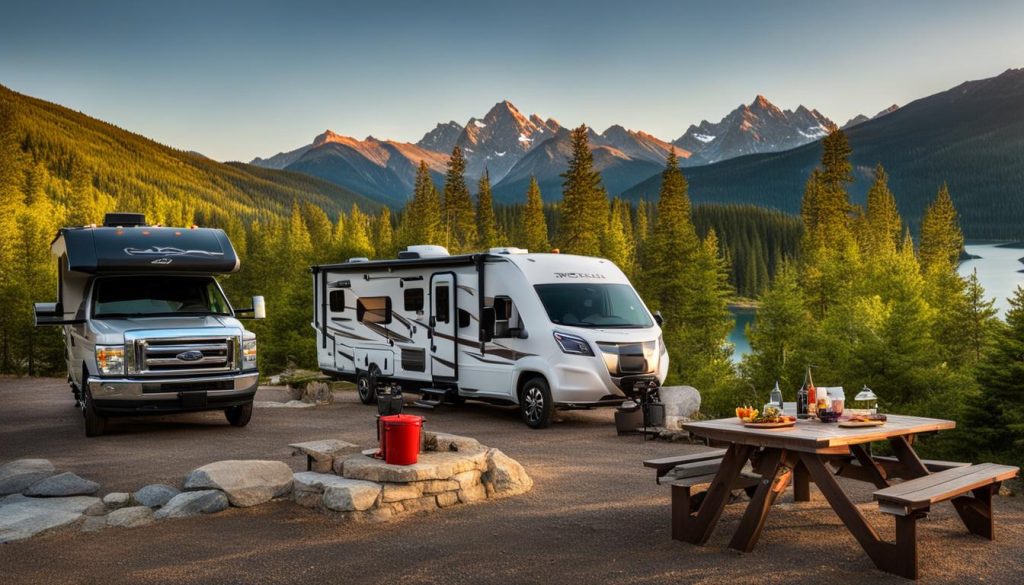
How to Choose the Right RV WiFi Setup
When it comes to staying connected on your RV adventures, choosing the right WiFi setup is crucial. You need to consider your connectivity requirements and internet usage to ensure a reliable and fast connection wherever you go. Here are some important factors to keep in mind when making your decision:
Connectivity Requirements
Start by evaluating your connectivity requirements. Determine how you plan to use the internet in your RV. Are you mainly using it for basic browsing and checking emails, or do you need a robust connection for remote work or streaming videos? Understanding your specific needs will guide you in selecting the most suitable WiFi setup.
Cellular Data vs. WiFi Networks
Next, weigh the pros and cons of using cellular data versus WiFi networks. Cellular data allows you to have internet access almost anywhere, relying on a data plan from providers like AT&T or Verizon. On the other hand, connecting to WiFi networks, such as campground WiFi, can provide a cost-effective solution, but it may be unreliable and slow in some locations.
Gear Options
Explore the gear options available for enhancing your RV WiFi setup. Key options include:
- Hotspots: Devices from providers like T-Mobile or Verizon that create an internet connection from cellular data.
- Boosters: Devices that amplify your cellular signal, leading to better internet speeds.
- Repeaters: Equipment that extends the reach of your WiFi network, improving signal strength inside your RV.
- Routers: Essential for distributing your RV’s WiFi connection among multiple devices.
Consider these gear options based on your location and usage requirements to ensure you have the best signal strength and internet speeds.
Signal Strength
Signal strength is crucial for a stable and fast internet connection in your RV. Assess the signal strength in different locations and choose a WiFi setup that can handle weaker signals if you plan on boondocking or exploring remote areas.
By carefully considering your connectivity requirements, the benefits of cellular data versus WiFi networks, exploring gear options, and prioritizing signal strength, you can confidently choose the right RV WiFi setup that meets your needs.
| Connectivity Requirements | Cellular Data | WiFi Networks |
|---|---|---|
| Basic browsing and emails | ✔️ | ✔️ |
| Remote work | ✔️ | ❌ |
| Streaming videos | ✔️ | ❌ |
| Signal availability in remote areas | ✔️ | ❌ |
Tips for Maximizing Your RV WiFi Connection
To fully maximize your RV WiFi connection, there are several steps you can take to ensure a seamless and reliable internet experience.
Firstly, consider using WiFi extenders or repeaters to improve the signal strength inside your RV. These devices help expand the coverage area and eliminate dead spots, allowing you to stay connected no matter where you are in your vehicle.
Managing your data usage is another crucial aspect. Adjust the data usage settings on your streaming platforms to conserve data. Lowering video quality settings and limiting automatic downloads can significantly reduce your data consumption, giving you more bandwidth for other online activities.
Additionally, it’s important to regularly conduct speed tests to monitor your internet speed. This will help you identify any potential issues or areas for improvement. Monitoring your speed can also help you determine if you need to adjust your WiFi setup or explore alternative options.
To optimize your WiFi connection further, utilize data-saving settings on your apps. Many apps offer options to reduce data usage, such as disabling autoplay videos or images. Enabling these settings can help you save data while still enjoying your favorite apps and websites.
Lastly, when planning your RV adventures, research destinations with good cell phone coverage using resources like Campendium. This will ensure that you have a reliable cellular signal when WiFi is not available, allowing you to stay connected even in remote locations.
By following these tips and utilizing WiFi extenders, managing data usage settings, conducting regular speed tests, optimizing apps for data-saving, and finding destinations with good cell phone coverage, you can maximize your RV WiFi connection and enjoy a seamless internet experience during your travels.
FAQ
How can I get internet in my RV?
There are two primary options for getting internet in your RV: using cellular data from a provider or connecting to a local WiFi network. The option you choose will depend on your internet usage requirements and the availability of reliable internet connections in your camping locations.
How do I determine my internet needs for my RV?
Before purchasing any internet setup for your RV, it’s important to determine your internet needs. Consider factors such as whether you will be working remotely, streaming videos, or need a reliable signal for boondocking. Different internet setups will be required based on your internet usage requirements.
Can I use cellular data for internet in my RV?
Yes, using cellular data from a provider like AT&T or Verizon is one option for getting internet in your RV. Depending on your internet usage requirements, you may need an unlimited data plan to avoid data caps. Signal boosters can also be used to enhance your cellular signal for better internet connectivity.
Is it possible to connect to WiFi networks in my RV?
Yes, you can connect to WiFi networks, such as campground WiFi, in your RV. However, campground WiFi can be unreliable and slow due to various factors. WiFi extenders or repeaters can help improve WiFi signal strength inside your RV. It’s important to note that WiFi may not be available when boondocking, so you may need to rely on cellular data instead.
What are some common internet terms and gear options for RV WiFi?
To navigate the world of RV WiFi, it’s important to understand common internet terms and different gear options available. Some terms include speed tests, hotspots, boosters, repeaters, and routers. Hotspots create an internet connection from cellular data, while boosters and repeaters enhance your cellular signal. Routers can be used to distribute your RV’s WiFi connection. Having an unlimited data plan can provide you with peace of mind and prevent data throttling.
How do I choose the right RV WiFi setup?
When choosing the right RV WiFi setup, you need to consider your connectivity requirements and internet usage. Evaluate whether cellular data or WiFi networks will suit your needs better. Assess the gear options available and choose the ones that will provide you with the best signal strength and internet speeds based on your location and usage requirements.
What are some tips for maximizing my RV WiFi connection?
To maximize your RV WiFi connection, consider using WiFi extenders or repeaters to improve signal strength. Adjust your data usage settings on streaming platforms to conserve data. Conduct regular speed tests to monitor your internet speed. Optimize your WiFi connection by using data-saving settings on apps and adjusting video quality settings. These tips will help you make the most of your RV WiFi connection and stay connected on your travels.

